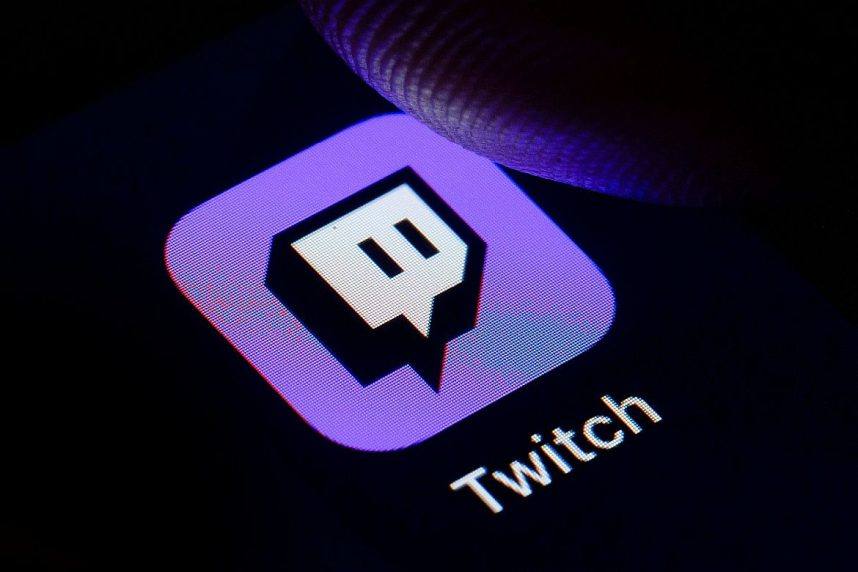Video Game Gambling Streams Still Active on Twitch Despite Ban
Posted on: December 15, 2023, 07:01h.
Last updated on: December 17, 2023, 05:12h.
Amazon-owned content streaming platform Twitch continues to allow CS:GO gambling content despite company’s active ban. Players often use “skin” to bet on content on the platform.

Video game skin gambling uses virtual in-game items, often called “skins,” as currency to bet on the outcome of professional or amateur eSports matches or other virtual events. Gambling typically involves streamers conducting live streams of matches or events while viewers can place bets using their own in-game skins. The streamer acts as a mediator or host, handling the distribution of winnings and managing the overall betting process.
Users can still find access to sites promoting video game gambling on Twitch. This is something the platform expressly began to prohibit in August.
Dexerto, a news outlet that follows the global gaming industry, reported on Thursday that it has yet to identify a single channel penalized for promoting these sites. It analyzed familiar gambling content channels and found no difference between August and now.
The media outlet reported that individual streamers and tournament organizers continue to promote case-opening platforms and stream their gambling activities. They even still use Twitch extensions like Magic Wheel to win prizes. A user on Reddit, “atalanthus,” also recently verified the connection.
CS:GO Concerns
In response to growing concerns regarding promoting CS:GO (Counter-Strike: Global Offensive) gambling sites on its platform, Twitch banned promoting CS:GO case opening sites and gambling this past August. Designed to help prevent underage gambling, this move was met with positive feedback from the gaming community, and it was assumed the streamers who profited off the case openings would take a financial hit.
Before the ban, YouTuber “HOUNGOUNGAGNE,” a self-described CS:GO “addict” with 727K subscribers, discovered that approximately 75% of the top 300 CS:GO streamers on Twitch incorporated gambling sponsorships into their broadcasts. Surprisingly, according to Dexerto’s investigation, this figure appears to have remained consistent despite the explicit ban, raising questions about Twitch’s enforcement of its guidelines.
Twitch, which recently pulled out of South Korea for financial reasons, specifically said in August, “[CS:GO gambling] promotion/sponsorship is not allowed on our service.”
Sexual Content Policies
Twitch recently revamped its policies on sexual content for streamers, aiming for clarity and transparency. The updated guidelines, detailed in a blog post, ensure content creators understand the rules and that viewers can expect the intended experience.
One significant change allows “artistic nudity,” encompassing nude figure drawings of any gender. The policy allows for content that shows the “breasts, buttocks or pelvic region.” The creator must include the ‘Sexual Themes’ label to prevent unwanted access, according to Twitch.
Twitch has confirmed that it will also allow other types of content, including “fictionalized (drawn, animated, or sculpted) fully exposed female-presenting breasts and/or genitals or buttocks regardless of gender,” “body writing on female-presenting breasts and/or buttocks regardless of gender,” and “erotic dances that involve disrobing or disrobing gestures, such as strip teases.”
Despite this, there appears to be some ambiguity in Twitch’s definition of “artistic content,” as demonstrated by recent incidents. Steamer and OnlyFans model Morgpie recently received a ban for a viral video of her dancing, although she didn’t actually show her “private parts.” Her ban is still in place.
Related News Articles
Twitch’s Recent Gambling Content Ban Leads to 20 Percent Viewership Loss
Twitch Continues to Slide Following Changes to Gambling Content Rules
Twitch’s Move Against Gambling Fuels New Stake.com-Backed Streaming Platform
Most Popular
Mirage Las Vegas Demolition to Start Next Week, Atrium a Goner
Where All the Mirage Relics Will Go
Most Commented
-
Bally’s Facing Five Months of Daily Demolition for Chicago Casino
— June 18, 2024 — 12 Comments -
Chicago Pension Mess Highlights Need for Bally’s Casino
— July 2, 2024 — 5 Comments
















Last Comment ( 1 )
Most of the time, when it comes to CSGO gambling, it is not the streamers who mediate the skins and hand them back out, most of them outsource to popular websites where they have affiliate codes. These websites rarely have any precautions for children, you just need to click a box that says your 18+ and it will allow you to gamble. Skin Gambling has been in CSGO since 2014 and while I would like to see action taken against it, Valve have tried time and time again to prevent the ability to gamble skins, but with these gambling websites being giants in the space and generating millions of dollars daily, they will find ways around the rules. Take this from someone who has played CSGO for over 10 years now, and has lost countless dollars while under the age of 18 on these websites.